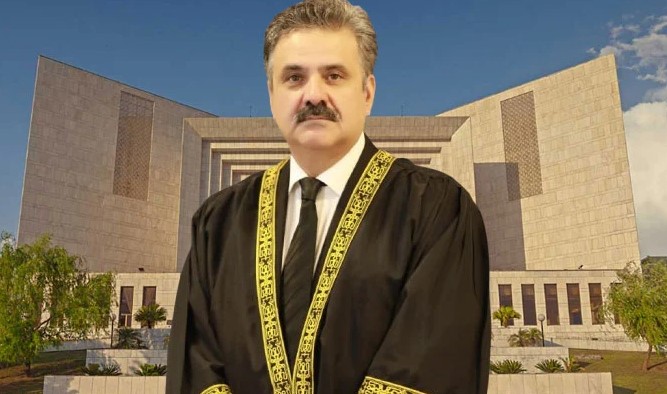Qureshi1975
Banned
Sayyidina Khidr, Abul `Abbas
 , is the one whom Allah mentioned in the Holy Qur'an [18:65f.] as the servant of Allah who met with the Prophet Musa and taught him by means of a series of practical lessons about the Will of God and His Actions.
, is the one whom Allah mentioned in the Holy Qur'an [18:65f.] as the servant of Allah who met with the Prophet Musa and taught him by means of a series of practical lessons about the Will of God and His Actions.
Irfan Omar in "Khidr in the Islamic Tradition"[1]:
[h=2]Khidr in History[/h]

Irfan Omar in "Khidr in the Islamic Tradition"[1]:
[h=2]Khidr in History[/h]
Khidr is one of the four prophets whom the Islamic tradition recognizes as being alive or immortal. The other three being Idris (Enoch), Ilyas (Elias), and Isa (Jesus).Khidr is immortal because he drank from the water of life. There are some who have asserted, however, that this Khidr is the same person as Elijah.He is also identified with St. George.
In Islamic folk literature, one finds a variety of names and titles associated with Khidr. Some say Khidr is a title; others have called it an ephithet.He has been equated with St. George, identified as the Muslim version of Elijah and also referred to as the eternal wanderer.Scholars have also called and characterized him as a saint, prophet-saint, mysterious prophet-guide and so on.
The story of Khidr finds its source in the Qurān, chapter 18 (Sūrat Kahf) verses 60-82,
Then they found one of Our votaries whom We had blessed and given knowledge from Our Presence.
These verses primarily deal with an allegorical story relating Moses journey in search for truth. Full of symbolism, the Qurānic story introduces the mysterious figure of Khidr, who symbolizes the utmost depth of mystic insight accessible to man.While Khidr is not mentioned in the Qurān by name on the basis of Hadīth literature, the mysterious person with whom Moses meets as mentioned in 18:65, and who is called in the Qurān as one of Our votaries, is no other than the eternal Khidr.
[h=2]Khidr in the Qurān[/h]In the Quran the story begins by Moses declaration to his servant/companion that I will not give up till I reach the confluence of two oceans. Moses and Joshua had begun to search for a servant of Allah from whom Moses was to learn the secret knowledge given him by God. As seen above, Muslim tradition identifies this servant as Khidr.
Qurānic commentators have related several opinions with regard to the status of Khidr. Some say he is one of the prophets; others refer to him simply as an angel who functions as a guide to those who seek God. And there are yet others who argue for his being a perfect wali meaning the one whom God has taken as a friend.
Some commentators who have thought of Khidr as a prophet, have mainly argued on the basis of the Qurānic reference to him as rahma. What does this term, rahma, mean in its Qurānic context? As related above the Qurān re*lates in S.18:65; Khidr is one of those whom We had blessed. This characterization usually applies to the prophets. Rahma comes from the root RHM meaning womb. Other translations of S.18:65 include,
And there they found a devotee among Our devotees. We had blessed him with Our grace
they found one of our servants unto whom we had granted mercy from us
Commentators are more or less in agreement that the status of Moses is certainly higher than that of Khidr, since he (Moses) is not only a Messenger (rasūl) but also a prophet (nabi), bearer of the divine revelation and provisions of the law. Khidr, on the other hand, does not hold these titles, although the Qurān calls him a Servant of God. Ibn Arabis account of this encoun*ter also sheds some light on the nature of their relationship. Netton, for example, points out that there is an
overwhelming emphasis on rank and knowledgefor al-Khadir is aware that Moses hold the exalted rank of Messenger (rasūl) which he, al-Khadir, does not
However, to analyze the subsequent verse of Sūrat al-Kahf, verse 66, in this context, we find that it deals with Moses request to he instructed by Khidr, which, seemingly at least, puts Khidr at a higher position than that of Moses. This further confirms the status of Khidr as a prophet, as mentioned in the previous verse.
The emphasis here is on two key words which perhaps determine the overall meaning of the verse, atabika and tuallimanī which may have direct bearing upon the status of Khidr. Ahmed Ali translates it as,
May I attend upon you that you may instruct me in the knowledge you have been taught of the right way? (emphasis added)
Amir-Ali has translated the key words as,
May I follow thee so that thou mayst teach me something of thy wisdom? (emphasis added)
[h=2]Khidr in Sufi Teaching[/h]
This is how Ibn `Arabi (q) in Fusus al-hikam explains the three acts
of Khidr
 witnessed
witnessed
by Musa
 :
:
"Moses was tested 'by many ordeals' [20:41] the first of which was the
murder of the Egyptian [28:14-15], an act which he committed by Divine impulsion
and with the approbation of God deep inside him, without however, his perceiving
it; nevertheless he felt no affliction in his soul for having killed the
Egyptian, although he himself was not acquitted until he had received a Divine
revelation on the subject. For all prophets are interiorly preserved from sin
without their being conscious of it, even before they are warned by
inspiration.
"It is for that reason that al-Khidr showed him the putting to death of the
boy, an action for which Moses reproached him, without remembering his murder of
the Egyptian, upon which al-Khidr said to him: 'I have not done it of my own
initiative,' recalling thus to Moses the state in which he, the latter, found
himself when he did not yet know that he was essentially preserved from all
action contrary to the Divine Order.
"He showed him also the perforation of the boat, apparently made to destroy
the people, but which has, however, the hidden sense of saving them from the
hand of a 'violent man.' He showed this to him as an analogy to the ark which
hid Moses when he was thrown into the Nile; according to appearances, this act
was equally to destroy him, but according to the hidden sense, it was to save
him. Again his mother had done that for fear of the 'violent man,' in this case
Pharaoh, so that he would not cruelly kill the child...
"Moses arrived then at Madyan, there met the two girls and for them drew
water from the well, without asking from them a salary. Then he 'withdrew to the
shade,' that is to say to the Divine shadow, and said: 'O my Lord, I am poor
with regard to the blessings Thou bestowest on Me'; he attributed, then, to God
alone the essence of the good that he did and qualified himself as poor
(faqir) towards God. It was for that reason that al-Khidr reconstructed
before him the crumbling wall without asking a salary for his work, for which
Moses reprimanded him, until Khidr reminded him of his action of drawing water
without asking for reward, and other things too, of which there is no mention in
the Koran; so that the Messenger of God -- may God bless him and give him Peace!
-- regretted that Moses did not keep quiet and did not remain with al-Khidr, so
that God could tell him more of their actions."
[h=2]Khidr in Ahadith[/h]
In Islamic folk literature, one finds a variety of names and titles associated with Khidr. Some say Khidr is a title; others have called it an ephithet.He has been equated with St. George, identified as the Muslim version of Elijah and also referred to as the eternal wanderer.Scholars have also called and characterized him as a saint, prophet-saint, mysterious prophet-guide and so on.
The story of Khidr finds its source in the Qurān, chapter 18 (Sūrat Kahf) verses 60-82,
Then they found one of Our votaries whom We had blessed and given knowledge from Our Presence.
These verses primarily deal with an allegorical story relating Moses journey in search for truth. Full of symbolism, the Qurānic story introduces the mysterious figure of Khidr, who symbolizes the utmost depth of mystic insight accessible to man.While Khidr is not mentioned in the Qurān by name on the basis of Hadīth literature, the mysterious person with whom Moses meets as mentioned in 18:65, and who is called in the Qurān as one of Our votaries, is no other than the eternal Khidr.
[h=2]Khidr in the Qurān[/h]In the Quran the story begins by Moses declaration to his servant/companion that I will not give up till I reach the confluence of two oceans. Moses and Joshua had begun to search for a servant of Allah from whom Moses was to learn the secret knowledge given him by God. As seen above, Muslim tradition identifies this servant as Khidr.
Qurānic commentators have related several opinions with regard to the status of Khidr. Some say he is one of the prophets; others refer to him simply as an angel who functions as a guide to those who seek God. And there are yet others who argue for his being a perfect wali meaning the one whom God has taken as a friend.
Some commentators who have thought of Khidr as a prophet, have mainly argued on the basis of the Qurānic reference to him as rahma. What does this term, rahma, mean in its Qurānic context? As related above the Qurān re*lates in S.18:65; Khidr is one of those whom We had blessed. This characterization usually applies to the prophets. Rahma comes from the root RHM meaning womb. Other translations of S.18:65 include,
And there they found a devotee among Our devotees. We had blessed him with Our grace
they found one of our servants unto whom we had granted mercy from us
Commentators are more or less in agreement that the status of Moses is certainly higher than that of Khidr, since he (Moses) is not only a Messenger (rasūl) but also a prophet (nabi), bearer of the divine revelation and provisions of the law. Khidr, on the other hand, does not hold these titles, although the Qurān calls him a Servant of God. Ibn Arabis account of this encoun*ter also sheds some light on the nature of their relationship. Netton, for example, points out that there is an
overwhelming emphasis on rank and knowledgefor al-Khadir is aware that Moses hold the exalted rank of Messenger (rasūl) which he, al-Khadir, does not
However, to analyze the subsequent verse of Sūrat al-Kahf, verse 66, in this context, we find that it deals with Moses request to he instructed by Khidr, which, seemingly at least, puts Khidr at a higher position than that of Moses. This further confirms the status of Khidr as a prophet, as mentioned in the previous verse.
The emphasis here is on two key words which perhaps determine the overall meaning of the verse, atabika and tuallimanī which may have direct bearing upon the status of Khidr. Ahmed Ali translates it as,
May I attend upon you that you may instruct me in the knowledge you have been taught of the right way? (emphasis added)
Amir-Ali has translated the key words as,
May I follow thee so that thou mayst teach me something of thy wisdom? (emphasis added)
[h=2]Khidr in Sufi Teaching[/h]
This is how Ibn `Arabi (q) in Fusus al-hikam explains the three acts
of Khidr

by Musa

"Moses was tested 'by many ordeals' [20:41] the first of which was the
murder of the Egyptian [28:14-15], an act which he committed by Divine impulsion
and with the approbation of God deep inside him, without however, his perceiving
it; nevertheless he felt no affliction in his soul for having killed the
Egyptian, although he himself was not acquitted until he had received a Divine
revelation on the subject. For all prophets are interiorly preserved from sin
without their being conscious of it, even before they are warned by
inspiration.
"It is for that reason that al-Khidr showed him the putting to death of the
boy, an action for which Moses reproached him, without remembering his murder of
the Egyptian, upon which al-Khidr said to him: 'I have not done it of my own
initiative,' recalling thus to Moses the state in which he, the latter, found
himself when he did not yet know that he was essentially preserved from all
action contrary to the Divine Order.
"He showed him also the perforation of the boat, apparently made to destroy
the people, but which has, however, the hidden sense of saving them from the
hand of a 'violent man.' He showed this to him as an analogy to the ark which
hid Moses when he was thrown into the Nile; according to appearances, this act
was equally to destroy him, but according to the hidden sense, it was to save
him. Again his mother had done that for fear of the 'violent man,' in this case
Pharaoh, so that he would not cruelly kill the child...
"Moses arrived then at Madyan, there met the two girls and for them drew
water from the well, without asking from them a salary. Then he 'withdrew to the
shade,' that is to say to the Divine shadow, and said: 'O my Lord, I am poor
with regard to the blessings Thou bestowest on Me'; he attributed, then, to God
alone the essence of the good that he did and qualified himself as poor
(faqir) towards God. It was for that reason that al-Khidr reconstructed
before him the crumbling wall without asking a salary for his work, for which
Moses reprimanded him, until Khidr reminded him of his action of drawing water
without asking for reward, and other things too, of which there is no mention in
the Koran; so that the Messenger of God -- may God bless him and give him Peace!
-- regretted that Moses did not keep quiet and did not remain with al-Khidr, so
that God could tell him more of their actions."
Narrated Ibn 'Abbas: That he differed with Hur bin Qais bin Hisn Al-Fazari regarding the companion of (the Prophet) Moses. Ibn 'Abbas said that he was Khadir. Meanwhile, Ubai bin Ka'b passed by them and Ibn 'Abbas called him, saying "My friend (Hur) and I have differed regarding Moses' companion whom Moses, asked the way to meet. Have you heard the Prophet mentioning something about him? He said, "Yes. I heard Allah's Apostle saying, "While Moses was sitting in the company of some Israelites, a man came and asked him. "Do you know anyone who is more learned than you? Moses replied: "No." So Allah sent the Divine Inspiration to Moses: 'Yes, Our slave Khadir (is more learned than you.)' Moses asked (Allah) how to meet him (Khadir). So Allah made the fish as a sign for him and he was told that when the fish was lost, he should return (to the place where he had lost it) and there he would meet him (Al-Khadir). So Moses went on looking for the sign of the fish in the sea. The servant-boy of Moses said to him: Do you remember when we betook ourselves to the rock, I indeed forgot the fish, none but Satan made me forget to remember it. On that Moses said: 'That is what we have been seeking? (18.64) So they went back retracing their foot-steps, and found Khadir. (And) what happened further to them is narrated in the Holy Qur'an by Allah. (18.54 up to 18.82)
- Featured Thumbs
- http://sajidine.com/titre/al_khadir.jpg




























